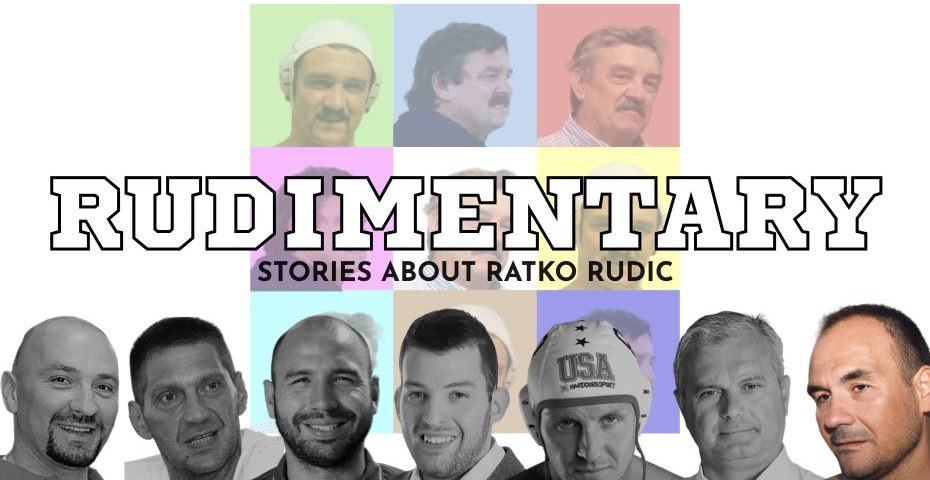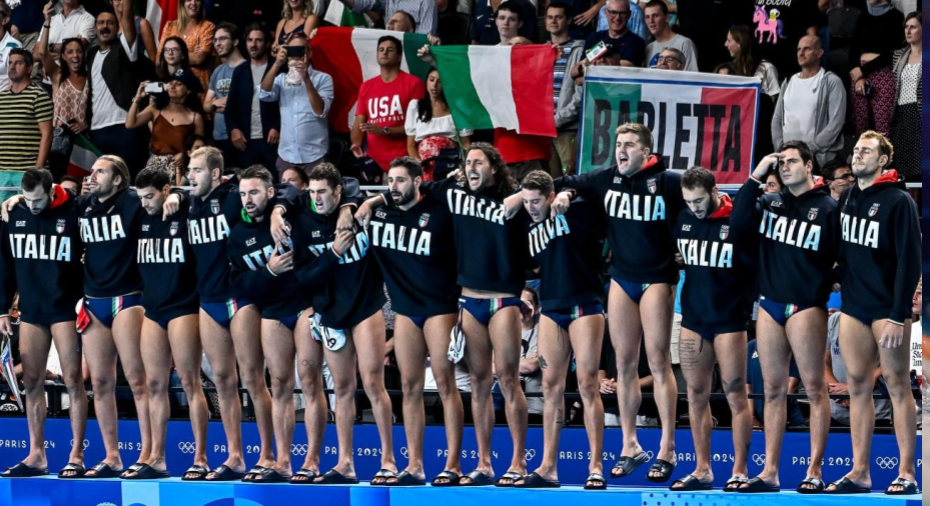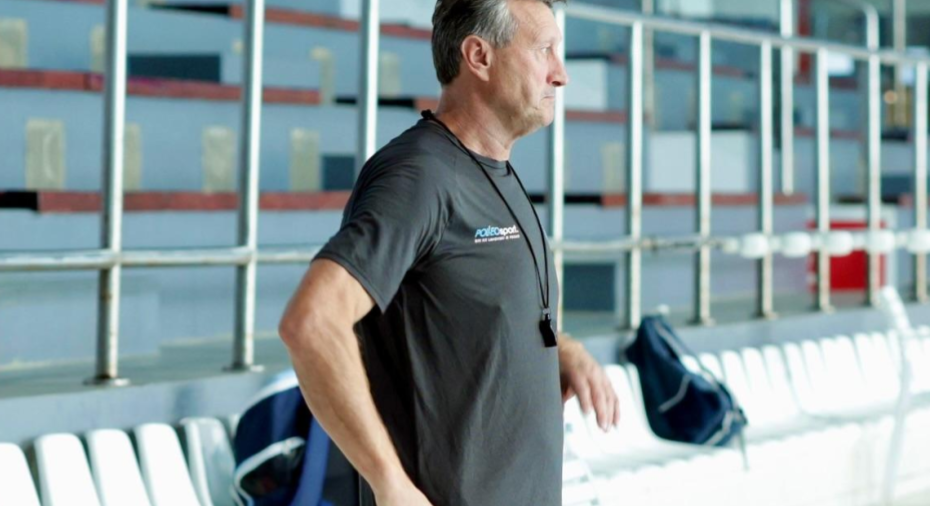Ratko Rudic’s retirement has been the most important water polo news in the last few days.
On this occasion, Total Waterpolo prepared several interviews with Rudic’s former players, who evoked the memories of the work with the great coach.
Perica Bukic, the former captain of Croatia’s national team, and the current vice-president of the Croatian Water Polo Federation cooperated with Ratko Rudic in two roles.
Rudic picked Bukic for the national team of Yugoslavia when he was a teenager. Under Rudic’s guidance and with Bukic in the team, Yugoslavia won two Olympic golds, the title of the World Championships, medals at the Europeans. Two decades later, Rudic and Bukic found themselves in a joint job again. Bukic was the president of the Croatian Water Polo Federation, and he managed to bring Rudic to Croatia’s bench.
“My entire water polo career was intertwined with Ratko Rudic. We worked together on several occasions, and, mostly, it was exceptionally successful. Still, there were situations when we were on opposite sides.”, Bukic said at the beginning.
Asked if he remembered when he met Rudic Bukic answered:
“Our first encounter was in my first season in the senior team of Solaris. In October 1981, I was 15 years old and I played in the game of the national Cup against Partizan, for which Ratko Rudic played one of the last games of his career. So, I experienced Ratko in the pool. At that time, Ratko Rudic was a big name on a global water polo scale”.
How Rudic saved Bukic?
However, the coach Ratko significantly surpassed the player Ratko in the results, Bukic underlined.
“Shortly after my first, and, I think, Ratko’s last game in senior water polo, he became an assistant coach in Partizan. Then, he became an assistant of Milo Nakic, the head coach of the senior national team.
A year later, Igor Milanovic and I were among the candidates for that senior national team. We haven’t even turned 17.
I remember an anecdote from the preparations in January 1983 in Belgrade. I came to preparations without equipment for training outside the pool, for running, and training in the gym (we didn’t even do “dry” training in Šibenik)…Mile Nakic even wanted to send me home, but Ratko “saved” me by lending me his equipment and sneakers, though they were too small for me.
In the same year, 1983, Ratko took over the junior national team of our former country and gathered a generation that was at the top of the world of water polo in the following years.”
In 1983, we met new Ratko
Bukic says that the discipline was necessary for work with Ratko Rudic.
“That year, we met a different Ratko comparing to the voice that accompanied him as a player. There was not nonchalance, improvisation, or something like that. Work, order, and discipline dominated.
The results were two junior finals: we won silver medals at both the European Championships in Istanbul and the World Championships in Barcelona. At that time, the country did not often win medals at junior competitions. So it was quite a success for the then young coach, but of course for all of us.
That hunger for perfect performance characterized him during his whole career. And that meant exclusively gold. After the years that have passed, I can say that he transferred his passion for victory to his players.”
Advice and order in Los Angeles
In the Olympic year, 1984, Ratko Rudic took the helm of the senior national team of Yugoslavia.
“The dream of every athlete in his career is to come to the Olympic Games. An even bigger dream is to win a medal… But at the age of 18 to win gold !!! That can’t be compared to anything.
Before the Games in Los Angeles, I broke a bone of my right palm, but Ratko took me to California despite the injury, and that’s where our great row of successes started.”
Yugoslavia’s biggest rival was the team of the United States.
“I still vividly remember the details from those Games – the Olympic Village, Los Angeles…. but of course the most memorable was the match for the gold medal against the home team of the USA. Before the match, the Americans were photographed with gold medals, and that was the media announcement for the game!”
Bukic says that he still remembers well Ratko’s words at the meeting before the game.
“He said that all we had done until the final had been for the public, for the status of sports, but that we had to play the finals for ourselves. Eight thousand people filled the stands, and there were a lot of people at the hills surrounding the venue, in the fantastic clash of the two best national teams in the world at that time. Our opponents took a 5:2 lead. During the break between the quarters, Ratko came to us, gave us some advice on the details of the game and, walking towards the bench, just along the way, calmly and confidently, as he knows how, said: “Hey, don’t let us lose this game, not by chance!”
The game was ended in a 5:5 draw, which was enough for us to win the gold, according to the competition system at the time, since the round robin final group was played. Our joy, and the shock for the Americans.”
Two years later, the national team won the title at the World Championships in Madrid.
“After the gold in Los Angeles, that national team, but still significantly rejuvenated, with the burden of an Olympic winner, came to the World Championships in Madrid. Unlike the Games in Los Angeles, the national teams of the USSR and Hungary were competing in Madrid, but also Cuba, which was strong then.
Again, the fantastic preparation of Ratko Rudic and our great performance until entering the finals. In the semifinals, we beat the extremely high-quality national team of the USSR, and in the final, we played against Italy.
What to say about the World Championships final in which you play 11 overtimes… and in the end, a magnificent victory for another big, big gold.”
100 days of preparations for Seoul
Yugoslavia retained the Olympic gold in Seoul 1988.
“The crown of our collaboration during my playing career was certainly Seoul and the 1988 Olympic Games. We knew that we were a “target” for everyone. We knew that everyone would fight, especially against us, and that we would have to offer even more than in Los Angeles and Madrid. Preparations lasted an incredible 100 days. We no longer knew which continent we were on. Ratko had already taught us so much on his drill that we didn’t even ask when the gym was, when the pool was, how long it would take, when the video analysis was… That program lasted literally 24 hours. He never checked on us because there was no reason. This work was so demanding that we could hardly wait to have dinner and fall asleep. Of course… our goal remained the same – the Olympic gold. Ratko’s sentence: “it is much harder to defend the title than to win it”, proved to be true.”
The Americans were main rivals for the title again.
“The Americans defeated us in the 1st round. We had a difficult and uncertain match with the Hungarians until the last seconds, similar to the one with the Spaniards… and again the final with the USA. The game was opened in the same way as in Los Angeles. The Americans led 5-2. And then Ratko said the sentence: “this is good, everything is ok, just calm down, now we’re moving.” And the regular part of the game ended in a draw once more (6:6). But this time we played overtime and won again (9:7). We won the second Olympic gold in a row.”
Commitment to objective
What is the most essential thing Ratko taught you?
“Ratko’s exceptional quality was that he knew how to adapt to the environment. He also knew how to adjust his work system to each environment in order to achieve the goal and reach the top.
What I can be grateful to him and what he taught me the most during the playing career is, first and foremost, the need for absolute commitment to the objective. Don’t do 99% of what you set out to do. Do 110% to make sure you can give your best when you need to. And if you hadn’t blamed yourself tomorrow: “If I had done that part, maybe I would.” And he taught me that the team is the most important.
It’s nice to be the best player. It’s nice to be the top scorer, too. But, the only thing that is completely fulfilling is the victory of your team – to climb the pedestal, but the one in the middle -to win gold.
Only then there are no additional questions – so how did you not manage to win that final yet, why didn’t you… When it’s gold, there are no further comments except congratulations.
Journalists often asked me after those successes and gold medals if I was happy. No, that feeling is not happiness. You’re probably lucky when you win lottery bingo. When you do months and months of preparation, you swim tens of kilometers… winning gold is pure pleasure.
Our motivation, dedication and desire to win is, for the most part, Ratko’s merit.”
After the Olympic Games, Rudic retired from the position of the coach of the national team and took over Partizan. Bukic played for Mladost.
“In that season, Mladost and Partizan played in the final of the national championships. I remember that final especially, not only because of the trophy that Mladost won in Belgrade, but even more because of the excitement that we managed to win despite Ratko Rudic was on the opponent’s bench. He really was an additional motive for everyone.”
Encounter in Atlanta in 1996
From 1990 to 2000, Ratko Rudic was Italy’s head coach.
“During the period he coached Italy, we were rivals in several big games between Italy and, then, already independent, Croatia. Ratko’s side was better in most of these encounters. Italy and Ratko won the Olympic Games in Barcelona and the World Championships in Rome, as well as the European gold.
Italy and Rudic dominated until Croatia debuted at a major competition. It was at the Atlanta Games in 1996. For me, the Games were especially motivating. I was the captain of Croatia. I had the honor of carrying our flag at the opening ceremony of the Games, and my personal goal was to win a medal at those Games.
We faced Ratko in the group firstly. Italy had a magnificent series in the previous 4-5 years. They were almost undefeated in that period. They recorded a victory over us in that match. After our win in the most important game of those Olympic Games – in the quarterfinals against Yugoslavia – we were emotionally quite empty. And Ratko’s Italy was waiting for us in the semifinals. It was an extremely tough and demanding match. But, we happily and deftly won that game after the extra time, despite the exclusion of our coach Bruno Silic.
This is one of my favorite victories because apart from securing the Olympic final and the silver medal, the win against such an “invincible” Ratko’s team was a feat.”
New golden era
Early in the 21st century, Bukic retired as a player.
“At the end of my career, I started thinking about how great it would be to bring Ratko back to Croatia.
Ratko went to America. I was ending my playing career and after I was elected to the Croatian Parliament in 2003. A year later, after another consecutive poor result of our national team at the Olympic Games in Athens, my former teammates Bebic, Sukno and Roje suggested me to run for the president of the Croatian Water Polo Federation.”
Bukic accepted the teammates’ suggestion.
“My answer was that I would, but only if we managed to bring Ratko Rudic as the head coach.
I knew what we have a good organization and players for success. But we lacked a coach who will set up the system and bring ambition. And who has only one goal – the gold medals in continuity.
I knew that no matter how far it seemed from that perspective at the time, that with the arrival of Ratko we could return Croatian water polo not only to the roof of the world, but we could stay there for years.
Our first talk on this topic was not very optimistic, considering that Ratko just signed a new 4-year contract with the Americans. But, we both were persistent. He and I managed to convince the president of the American Water Polo Association Richard Foster (whom I thank again) to allow Ratko to return home.
Everything after that is the history we have covered in the monograph “Golden Decade of Croatian water polo”: World champions in Melbourne in 2007, European champions in Zagreb in 2010, and the crown of our work – the Olympic gold in London in 2012.”
After that, another joint gold in London, Bukic’s and Rudic’s paths crossed again at the 2016 Olympic Games in Rio de Janeiro.
“Ratko was on the bench of Brazil, while his student Ivica Tucak was on the bench of Croatia. We faced in the quarterfinal match that we won and which opened the door of another Olympic final for us, in which we won the silver medal. Ratko, on the other hand, achieved the greatest success of Brazilian water polo.”
The greatest coach of all time
Bukic believes that Rudic will have a role in water polo.
“I read these days that Ratko is done with water polo, but knowing him… water polo is the air he breathes! And the only certain thing is that we will continue to watch him by the edge of the pool, in a different role.
He is undoubtedly the greatest and most successful water polo coach of all time.
Today, I can proudly say my friend as well.”






